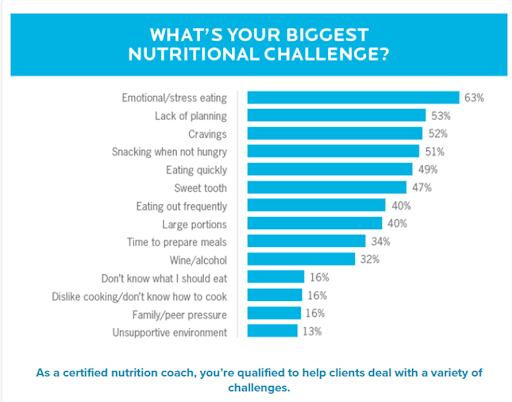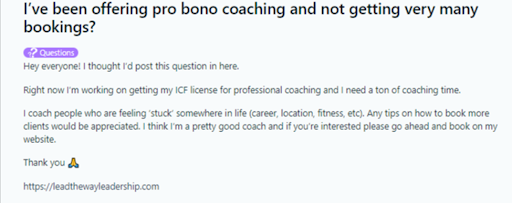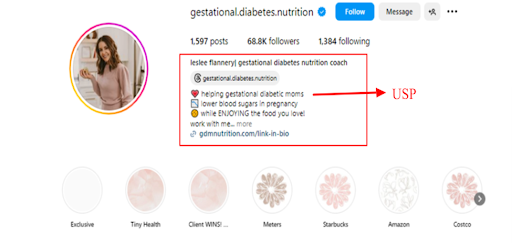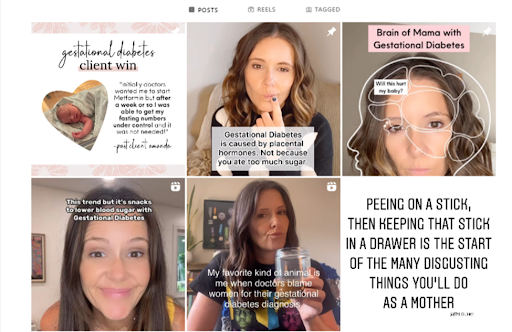How to Become an Online Nutrition Coach: The Ultimate Guide
Fitness and nutrition are the two essential aspects of healthy living. Given the conscious lifestyle choices people are making, the health coaching industry will be $29.12 billion by 2032.
If you have knowledge about nutritional science, a knack for solving people’s problems, and a passion for bringing positive change into their lives, then becoming a nutrition coach is the right path to explore!
However, nutritional coaching is not all about advising diet plans and macro portions; it’s also about driving behavioral changes in people!
Here’s a quick guide to what we cover in this blog:
- Who is a nutrition coach? What is the role of a nutrition coach
- What are the skills for becoming a nutrition coach
- How to become an online nutrition coach in 7 steps
- How much money do online nutrition coaches make
So, let’s start from the basics!
Who is a Nutrition Coach? What is the Role of a Nutrition Coach?
A nutrition coach guides people towards healthy living by advising them on the right meal plan and training programs and motivating them to overcome their daily struggles. Typically, there’s an obvious outcome, like losing weight, achieving a specific body composition, or recovering from a health condition.
So, to become a nutrition coach, you must have a unique blend of nutrition science, behavioral psychology, and fitness regimes!
Simply put, nutrition coaching is more about dealing with real people’s problems and helping them to integrate dietary and fitness changes into their lives!
Here’s what a nutrition coach does:
- Assess and understand people’s problems, know about their nutrition and lifestyle habits
- Set goals and identify their skills, challenges, and practices
- Guide them to make better nutrition, diet, behavior, and lifestyle choices
- Help them through the entire coaching process to achieve their outcome
Nutrition Coaches vs. Nutritionist: How Are They Different?
People often confuse an online nutrition coach with a registered dietician nutritionist (RDN).
Typically, a registered dietician must complete a four-year certification program from a research or science-based background. They delve deeper into the client’s medical conditions and offer meal plans or exercises.
On the other hand, a nutrition coach improves a client’s relationship with food and doesn’t necessarily need a certification.
Next, let’s delve into the skillset for becoming a nutrition coach!
What are the Skills for Becoming a Nutrition coach?
Here’s a list of qualities and practical skills you require to be an online nutrition coach:
-
Knowledge of Nutritional Science & Fitness
A detailed knowledge on composition of macronutrients, vitamins, minerals, calories, body composition, digestion, energy, etc., is required. Besides, coaches must also know the possible workouts & practices to achieve a specific outcome.
-
Behavioral Change
Sustaining changes is one of the most essential challenges people face to achieve a specific outcome. Here’s an interesting statistics on the biggest nutritional challenges. From “emotional eating” to “not finding enough time to cook meals”, the majority of them can be altered through positive reinforcement. Hence, that’s an essential skill for nutrition coaches.

-
Analytical & Problem-Solving Skills
Nutrition coaches need analytical and problem-solving skills to help people to overcome lifestyle challenges.
-
Communication & Listening Skills
From assessment to client follow-ups, coaches must master communication, listening and negotiating skills.
-
Ability to Understand Client’s Needs & Emotions
Clients navigate through several problems, including stress, family, peer pressure, and lack of planning. As a coach, it’s essential to have compassion and empathy to understand your clients’ problems.
How to Become an Online Nutrition Coach in 10 Steps?
Now that we know who a nutrition coach is and what it takes to be one, let’s examine how to navigate the coaching landscape.
Step 1: Define Your Niche or Speciality
The first step is to identify a speciality to start your coaching business. After all, you need to decide which clients you want to work with.
You can’t deal with all the health problems and cater to all the age groups in the audience. “Being a jack of all trades makes you a master of none!”
Niching down helps to serve clients better!
Here’s a 3-point step to bring you closer to your ideal niche:
- Find your passion or interest
- Look back at your experience, skills, success stories
- Gauge your niche’s profitability
- Drill down and analyze sub-niches
If you are new to online nutrition coaching, here are a few niche ideas to get you started:
- Weight Loss for millennials or women
- Strength training for CrossFit or smashing hyrox PBs
- Fitness & nutrition coach
- Gestational diabetic coach
- Sports Nutrition
- Menopause weight loss & nutrition coach
- Mindset & nutrition coach
- Nutrition coaching for kids
Step 2: Get Certified
Although certification is not necessary to be an online nutrition coach, it definitely gives you an edge over your competitors. It builds the necessary foundation to start your nutrition coaching business. Moreover, a certification covers topics such as nutritional science, coaching skills and techniques, communication and marketing skills, etc.
Listed below are the best nutrition certification programs:
- National Academy of Sports Medicine Certified Nutrition Coach
- Certified Nutrition Coach Certification (NASM – CMC)
- Nutritional Coach Certification(CNC)
- Board Certification in Holistic Nutrition(BCHN)
- International Sports Sciences Association Certified Nutritionist (ISSA)
- Precision Nutrition Certification Level 1(PN 1)
- Fitness Mentors Fitness Nutrition Specialist
- American Council on Exercise Fitness Nutrition Specialist(ACE FNS)
Choose a certification according to your niche!
Step 3: Identify Your Ideal Client
Before you work with free or paid clients, you need to discern your ideal client.
Yes, a one-size-fits-all approach doesn’t work for coaching! Each client has a different story, and hence, it’s essential to understand their perspective well!
Some clients might need more help with meal plans, while others might need motivation to implement workout programs.
Create your ideal client’s buyer persona based on their needs, expectations, pain points and interests. Some of the essential aspects to cover in your client profile are:
- Age
- Gender
- Nature of Work
- Marital Status
- Location
- Hobbies
- Lifestyle & Spending Habits
Leverage this information to craft your offerings and marketing strategies.
Step 4: Start Offering Pro Bono Services Early
While certification and skills help you get started, building a portfolio is a new thing altogether! As the saying goes, it is with experience that you gain wisdom! And what better than starting pro bono?
Pro bono means offering coaching services free or for the public good. The most important aspect here is freedom from judgment, as you will not be paid for your services. In exchange, you gain experience, testimonials, and certainly confidence to get started!
The following are the ways to get pro bono/practice clients:
- Your Personal Network (Word of mouth)
- Friends and Peers
- Facebook Groups
- Social media like X, LinkedIn, Instagram
- Related Subreddits and Forums
- Flyers and local businesses

Note: You can have more than one pro bono client. Some coaches even take 6 pro bono clients until they are confident enough!
Step 5: Work on Building Your Online Presence
Once you have gathered experience from your pro bono clients, you know well about your strengths, interests and areas of improvement! And yes, those testimonials give you enough social proof to get started!
Now, it’s time to place all those winning testimonials in public and make some noise — build your online presence!
Listed below are the different platforms for building your online presence:
Professional Website
Your website is the first thing your clients notice about your coaching business. Before building your website, set clear goals — whether you wish to sell your coaching programs, build your email list, or promote your brand.
Ensure that your website demonstrates your accomplishments, experience, and testimonials.
Include the following pages in your website:
- Home Page
- Contact
- Testimonials
- Selling coaching programs, courses, workshops, etc.
- Resources section including blogs, diets, workouts, etc.

Social Media
Another platform to create your online presence is social media!
It’s time to showcase your skills, blogs, informative tips, meal plans, recipes, etc., on your social media handles. Instagram, Facebook, and X are great platforms to get started.
Create a captivating bio and headline that demonstrates your unique business proposition well!
Include your website and social media links to help clients explore your offerings. Start offering free content related to your niche.
This could be myth-busters, unique insights, trends, recipes, diet plans, success stories, links to your podcasts and blogs, etc.


Step 6: Choose a Business Name and Work on the Legal Setup
Now, you are all set to start your legal coaching business!
Choose a memorable and catchy name for your business that aligns with your brand. If you plan to work with other nutrition coaches in the future, you can choose a personal brand name or a professional name.
Next, decide your business structure. Do you wish to start a Limited Liability Corporation (LLC), sole proprietorship or S corporation?
The choice of business structure depends on your liability protection, tax considerations, business management and funding. As a small business owner, you could start as an LLC, which provides you with liability protection and flexibility with tax management. Later, as you scale your business, you could switch to an S-corp structure!
Typically, you don’t need a license to work as a nutrition coach, but it’s better to check with your local regulatory agency.
Step 7: Design Your Coaching Offerings
Next, it’s time to set your coaching framework. Do you want to offer monthly memberships with digital products like ebooks? Or do you want a signature coaching program with weekly check-ins?
Coaching Model
Here are the two different approaches implemented by nutrition coaches:
- Prescriptive Approach
This approach uses meal plans and macronutrient prescriptions. However, meal plans are challenging to implement because clients find them hard to stick to and different clients respond differently to them. A better approach is to use food levels, calories, and macronutrients.
- Alternative Approach
In this approach, coaches employ behavior change, habit approaches, and mindfulness. This approach is more popular but doesn’t depend on body composition.
Designing Coaching Offer
You can typically sell a monthly program or a signature offer.
Here’s an interesting list of coaching offers suggested by Dr. Marc Morris, a popular nutrition coach and educator.

The low-ticket offer typically includes monthly memberships with resources like an ebook. Next is the popular medium-ticket offer, which includes an individualized nutrition plan with weekly check-ins and tweaks. This package lasts for around 4-6 months and can drive significant revenue.
Lastly, there is a high-ticket offer suitable for experienced coaches, as it demands expertise and builds pressure.
Coaching Plan
Your coaching program should employ practical application rather than just bombarding clients with information.
Typically, a coaching program starts with an
- Client Intake Session (Initial Assessment )
- Client Health Plan Session (Goal-Setting)
- Weekly and Monthly Check-ins on a pre-scheduled day every week (Evaluation and Progress Tracking)
During the check-ins, the coach collects information on body weight, sleep, stress, and energy levels. Based on this, the coach evaluates the client’s progress with the ongoing meal plan and makes required adjustments.
Step 8: Choosing the Pricing Model
Every coach struggles with pricing their packages at some point in time.
These are the different ways to charge your clients:
- Hourly Rate
When starting, coaches usually start at an hourly rate. However, here, the price is charged for the time, not the value you offer.
- Monthly/Retainer Rate
A fixed price is charged monthly, based on experience and your niche. This is an ideal model as it includes everything from client intake sessions to follow-up sessions. Moreover, both clients and coaches get time to notice results.
- Package Pricing
Charge at a discounted price for longer periods like 3, 6, or 1 year. Usually, longer packages are recommended for nutrition coaching because it takes time to see results like weight loss and overcoming health conditions.
Step 9: Attract Your Paid Coaching Clients
Now that you have established your coaching business, it’s time to achieve the next milestone—finding clients!
Get Your First Clients
Yes, your first client is absolutely important and generally the hardest one! Outreach is the best way to attract your first clients.
Here are the strategies to win your first client:
- Use your existing network; don’t underestimate the power of word of mouth.
- Try outreaching people in your contact list by sending personalized messages or emails.
- Host free nutrition webinars or workshops showcasing your expertise.
Finding More Clients
While you might have tried your best to offer a positive experience to your first client, you need to attract more clients to start your nutrition business. Spread the word out loud about the value you are offering.
Some of the tried-and-tested marketing strategies are:
- Create and publish niche-related blogs on trending topics.
- Share “What I Eat” posts, stories, blog links, and short and long videos on social media platforms like Instagram, Facebook, and TikTok.
- Start your podcast channel and invite industry experts for insightful interviews.
- Collaborate with nutrition experts, brands, and popular influencers to promote your nutrition programs.
- Networking through health and wellness events, wellness organizations,
- Offer free 1- week coaching programs or free resources like ebooks.
- Create referral programs to reward current clients with perks for referring new clients.
- Host nutritional challenges or giveaways on social media to create some buzz.
- Include solid and effective CTAs like “Click to learn more about nutrition programs.”
Step 10: Scale Your Coaching Business
You might have gained your initial clients and achieved the first few coaching milestones. But successful coaches constantly listen to feedback, tweak and evolve!
Let’s explore the different ways to scale your coaching business!
Diversify Your Coaching Income
Have you gained considerable expertise with 1:1 coaching? Scale your business with group coaching. It helps to coach many clients and maximize your income potential without putting in extra work hours!
Additionally, you could also combine all the information into a PDF or video series and offer it as study material to your participants.
Further, you could also sell online courses and earn a passive income! Once you have built significant niche authority, start a YouTube channel and create credible content on relevant niche topics.
Leverage a System to Manage More Clients
Over time, as your coaching business grows and you take on more clients, managing them could become exhausting. Automation is the best way to improve quality service without extra effort.
For instance, you could use email automation tools like Mailchimp and ConvertKit to send bulk emails to your clients. You could also create client portals to speed up and manage client onboarding. Your portal could include calendar management for self-scheduling appointments, accessing contacts, and purchasing programs.
Build a Community
If you have ticked all the boxes above, create your community to take your coaching business to the next level!
Network with other nutrition coaches and practitioners and create your online marketplace. This is an excellent way to connect with clients, engage, share experiences and create a buzzing tribe! While creating such a marketplace could feel overwhelming, ready-made clone scripts like Pinlearn make your job easier!
It is a highly customizable solution with features like live video conferencing, an inbuilt payment gateway, calendar management, and analytics to build a robust coaching marketplace!
How Much Does a Nutrition Coach Make?
Unlike medical practitioners, online nutrition coaches don’t diagnose and treat medical conditions. But they primarily guide people towards healthier lifestyle and wellness!
With people prioritizing their health and eating habits, there is a rising demand for nutrition coaches.
According to ZipRecruiter, the average salary of online nutrition coaches in the US is $43,836 yearly and $21 per hour.
According to the U.S. Bureau of Labour Statistics, the median annual salary for nutrition professionals is $69,680 and $33.50 per hour.
Successful coaches earn around $100 to $200 per month with experience. Factors like location, credentials, experience, the health of the population, and your coaching services influence your earnings as an online nutrition coach.
Ready to Become a Nutrition Coach?
A nutrition coach deals with different people and their real struggles! Whether you have an inspiring personal transformation story or are a personal fitness instructor, becoming an online nutrition coach is empowering!
This blog equips you with the detailed steps and unique insights to become an online nutrition coach. Whether you’re a new nutrition coach or a seasoned nutrition expert, it’s never too late to begin if you’re passionate enough!
FAQ-Related to How to Become an Online Nutrition Coach
1. How to be a nutrition coach?
Start by identifying your niche, getting certified, gaining experience, creating your brand, getting licensed, designing your coaching program, promoting your business, and, lastly, scaling your business.
2. How to start a nutrition business?
First, you need to have a clear vision for starting a nutrition coaching business. Next, work on your coaching skills, register your business name, work on branding, understand people’s problems, design your offerings and pricing, and promote your business.
3. Do nutrition coaches make money?
Nutritional coaching is a profitable business, given the increasing health awareness among people. According to ZipRecruiter, the average salary of an online nutrition coach is around $49,349 yearly.





